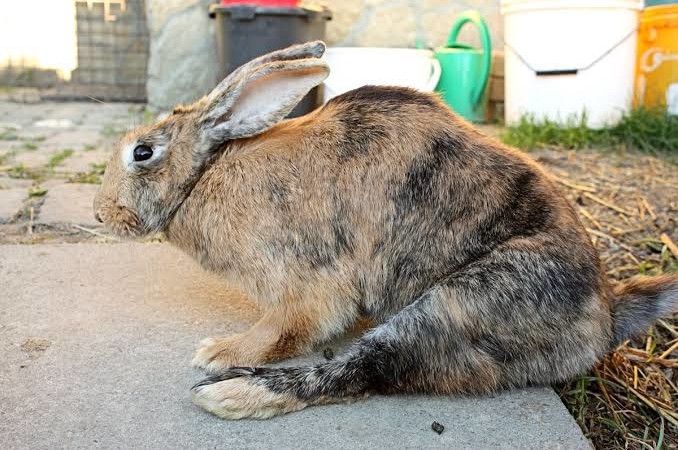

Rabbits are unlike other rared animals, do their best to conceal any illness. Rabbits are programmed to conceal their illnesses. This is a behavioral adaptation of a creature at the bottom of the food chain: a wild bunny showing obvious signs of illness becomes an easy target for a predator. Rabbits by nature conceal health problems as it is a way of concealing vulnebility to predators. Here are some of the ways to identify health problems in your Rabbits and how to handle them.
Difficulty in breathing
The normal respiration rate in an adult rabbit is 30 – 60/minute, but some breathe faster than this if they are hot or stressed. The time to get worried is if breathing is labored (long hard breaths rather than rapid panting in rabbits) or grunting. If the lips and tongue are blue tinted, your bunny is not getting enough oxygen. Sitting still with head slightly tilted upward is a clear sign of inability to breathe. Call the vet immediately.
Severe diarrhea
Rabbits who are sitting hunched in a pool of diarrhea (either liquid/watery feces or jelly-like material) need veterinary help fast. Baby rabbits are especially vulnerable to developing acute diarrhea (the weeks after weaning, just as young rabbits arrive in their new home, are especially high risk) and because they are so small, can become fatally dehydrated very quickly. A rabbit that has had an episode of runny or soft stools but is otherwise alert, lively, eating and generally his/her usual self should be safe overnight, and you can call the vet for advice in the morning if the problem persists. Don’t forget that excess caecotrophs (smelly, shiny, dark colored droppings like miniature bunches of grapes) do not count as diarrhea and do not need an emergency trip to the vet. However, if your rabbit’s backside is caked with caecotrophs they are at risk of flystrike, and will need to see the vet within a day or so for full evaluation.
Uncontrolled bleeding
Bleeding that isn’t controlled by firm, direct pressure needs prompt veterinary attention. Also, if the rabbit has been attacked by a dog, telephone the vet for advice even if there are no apparent injuries or those you can see seem minor. There may be internal damage and/or a risk of shock developing. Other bleeding from mouth, ears, rectum or other orifice needs vet.
Broken back or limb
Skeletal injuries usually occur when rabbits are dropped or fall from a height, which is one of the reasons why allowing young children to pick up rabbits is a bad idea. Spinal injuries causing partial or total hind limb paralysis are very serious, but not necessarily hopeless. Aggressive treatment with steroids as soon as possible after the injury helps some bunnies by limiting swelling in the spinal cord, and some lucky rabbits recover sufficiently to lead a pretty normal life. Broken legs can sometimes be fixed by lightweight casts, or pins and plates. A rabbit that has fallen from a height may also have internal injuries.
Limping, floppy or cold
These rabbits are very, very sick and may be close to death. The common end point of dehydration, shock or sepsis is a weak floppy rabbit, often with cold ears. They tend to sit hunched in a corner and ‘feel funny’ when you pick them up. Wrap them up warmly and get to the vet quickly.
Rabbit is in pain
Rabbits who are in pain sit hunched up with their eyes half closed, reluctant to move, grinding their teeth firmly. As well as being a welfare issue, pain is very dangerous to rabbits. As well as putting strain on their kidneys, pain is a very common trigger for the development of gastrointestinal stasis (ileus), a potentially lethal condition when the gut stops moving normally. Hence, if you think the rabbit is in pain, it is imperative that you seek veterinary treatment immediately.
Rabbit isn’t eating
Missing an odd meal often indicates serious trouble in Rabbits. Rabbits who stop eating are often suffering from GI stasis. Or, if they have stopped eating for another reason (e.g. pain due to dental problems) then it probably won’t be long before they do go on to develop GI stasis. If the rabbit has stopped eating entirely, call the vet immediately for advice. Check the litter tray, and specifically look for small droppings, pools of diarrhea, or droppings strung together by strands of hair. The vet will need to know if the rabbit has been eating, drinking, peeing and pooping normally If your rabbit is still eating but with reduced enthusiasm, or if it is eating some foods but not others, you should be fine to wait until next day.
 Contact Jaguza Support
Contact Jaguza Support